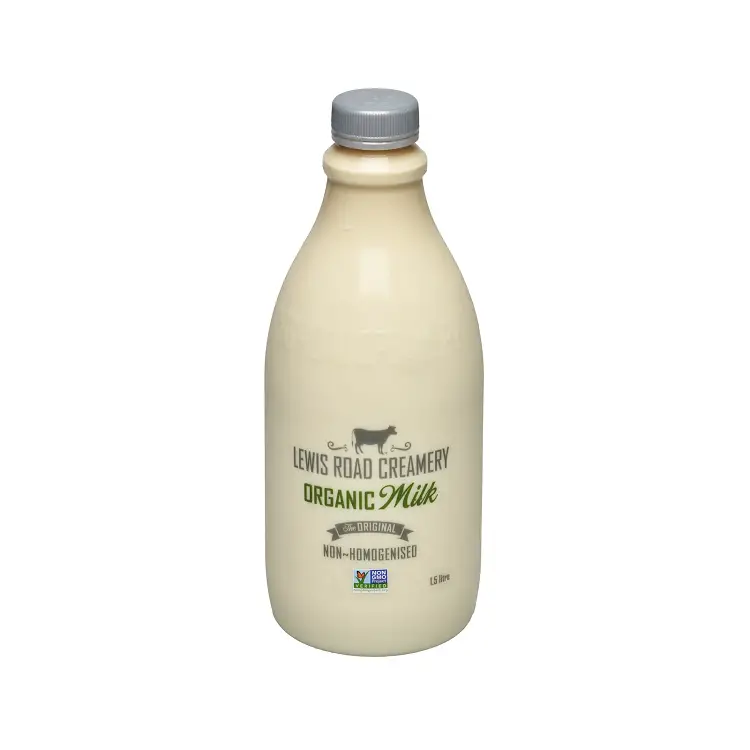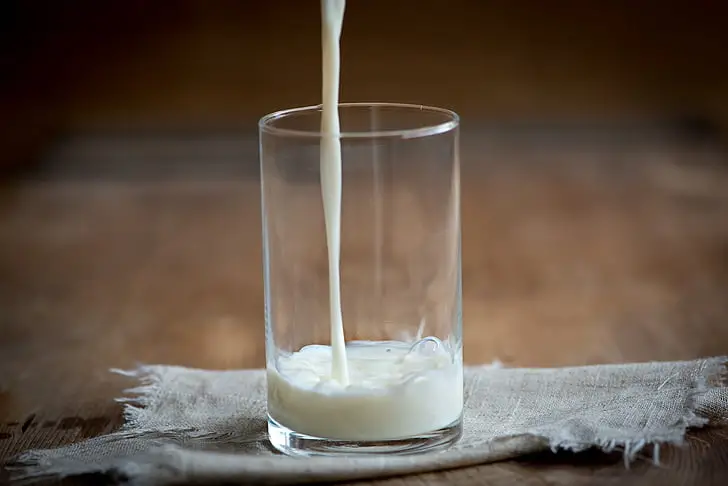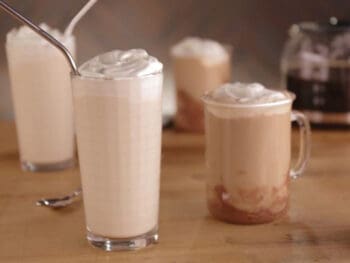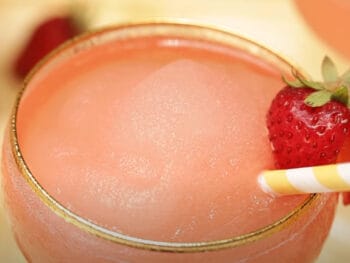Yes, Non-homogenized milk is safe to consume as it’s pasteurized, and separated from the homogenization process. It provides robust nutrition with 8 grams of protein per cup, and its creaminess is favored by some. Moreover, non-homogenized milk is safe for pregnant women and babies as well. It’s a great source of protein, calcium, and potassium which supports bone health. There is also some healthy alternative option such as plant-based milk like soy milk, oat milk, almond milk, etc.
There is more you need to know regarding your concern for the safety of non-homogenized milk. So, read the whole article to learn everything you need to know.
Key Takeaways
- The answer to whether drinking homogenized milk is safe or not.
- Whether pregnant women and babies can have it or not.
- The benefits and drawbacks of drinking non-homogenized milk
- The distinction between non-homogenized and raw milk.
- Healthy alternative options of non-homogenized milk.
Is Non-Homogenized Milk Safe
Consuming non-homogenized milk is safe as long as it is pasteurized. Through the pasteurization process, non-homogenized milk becomes free from bacteria.
Also, non-homogenized milk offers rich raw nutrition, with 8 grams of protein in just one cup. Some prefer it for its minimal processing and creamier taste.
Is Non-Homogenized Milk Safe During Pregnancy?
Non-homogenized milk is generally safe for pregnancy. But it’s crucial to understand that it can still contain bacteria and so is typically pasteurized for safety.
Drinking raw milk or unpasteurized non-homogenized milk during pregnancy can harm the fetus. And even lead to miscarriage, regardless of symptoms.

Source: lewisroadcreamery
Is Non-Homogenized Milk OK for Babies?
Non-homogenized milk is generally considered safe for babies and children too. It contains natural nutrition, like calcium, potassium, and Vitamin B.
These contents aid in boosting the immunity and growth of your toddler. However, FDA advises against raw and unpasteurized milk for pregnant women, children, and the elderly due to bacterial risks. Because raw milk is not pasteurized and does not undergo heat treatment to kill bacteria.
Also, it’s recommended to use organic whole milk and yogurt, but preferably non-homogenized, for children.
Benefits of Non-Homogenized Milk
Non-homogenized milk offers a diverse array of advantages. Let’s have a quick look at some of them.
- Non-homogenized milk is a great source of premium-quality protein. That protein is easier to digest than others, delivering essential nourishment for the body.
- Non-homogenized milk enhances the health of bones through the support of calcium phosphorus, potassium, protein, and vitamin K2.
- Drinking non-homogenized milk helps you to prevent excessive weight gain.
- In addition, drinking non-homogenized milk will provide your body with numerous nutrients. The prime nutrients are
- High levels of conjugated linoleic acid (CLA)
- Essential fatty acids
- Short-chain fatty acids
- Vitamins A
- Vitamin D
- Vitamin K2
- Calcium
- Magnesium
- Potassium
- Whey protein
- Immunoglobulins
There are many benefits to non-homogenized milk. For your convenience, it is important to learn about the benefits.
Are There Any Drawbacks of Non-Homogenized Milk?
Nothing comes with full benefits, right? Similarly, consuming too much non-homogenized milk can initiate some minor issues.
- The cream on top of non-homogenized milk contains a lot of fat. When trying to lose weight, this might be a concern when consuming daily.
- Some people might find non-homogenized milk harder to digest because of the bigger fat cells. Especially those with a digestive problem.
- Non-homogenized milk tastes and feels a bit buttery and so some people might not like that.

Source: graceharborfarms.
Is Non-Homogenized Milk the Same as Raw Milk?
No, Non-homogenized milk differs from raw milk. Non-homogenized milk maintains cream and can be pasteurized. Raw milk, unaltered, carries harmful bacteria and isn’t advised for certain groups.
For babies and children, non-homogenized milk is generally safe. However, raw milk presents higher risks and is unsuitable.
Now, you have an idea about the distinction between non-homogenized milk and raw milk. Otherwise, you may consider them as same.
Healthy Alternatives to Non-Homogenized Milk
There are some alternatives to non-homogenized milk. In case you want to avoid non-homogenized milk and want more healthy nutrients from your milk, choose these.
Alternative 1: Plant-Based Milk
Numerous plant-based milk substitutes exist, including almond milk, soy milk, oat milk, coconut milk, and rice milk. These cater to those with lactose intolerance, dairy allergies, or a preference for a vegan or plant-based diet.
Alternative 2: Organic Milk
Organic milk originates from cows raised without antibiotics, hormones, or pesticides, adhering to rigorous organic farming practices. This choice aligns with the preferences of individuals seeking a more natural and eco-friendly option.
Alternative 3: Goat’s Milk
Considering goat’s milk is another viable option. Its distinct composition compared to cow’s milk might provide easier digestion for certain individuals.
Nevertheless, goat’s milk should not be introduced to infants under 12 months old due to potential allergies.
Alternative 4: A2 Milk
A2 milk is sourced from cows naturally yielding solely the A2 beta-casein protein. That differs from conventional milk containing both A1 and A2 proteins. Some people discover A2 milk to be more digestible and it also reduces the cholesterol level.
Frequently Asked Questions
Is Non-Homogenized Legal in the USA
Non-homogenized milk is permitted and deemed safe for consumption in the United States. Yet, it’s crucial to differentiate between non-homogenized milk and raw milk. Because raw milk is subject to distinct regulations and poses a greater bacterial infection risk.
Is A2 Milk Healthier Than Regular Milk?
Regular milk and A2 milk are both delicious and nutritious liquids to add to cold cereal, smoothies, and coffee drinks. You will get almost the same amount of macronutrients and micronutrients, as well as a satisfying taste.
Can Non-Homogenized Milk Be Boiled Without Curdling?
Boiling non-homogenized milk typically avoids curdling, yet it might form clumps due to fat globule separation or the presence of proteins. Heat the milk gently over medium-low heat to prevent the dairy from curdling.
Conclusion
Now you know if non-homogenized milk is safe or not.
Non-homogenized milk boasts richer creaminess and a slightly sweeter, not to mention natural, taste. There is no danger in drinking this milk. In order to avoid potential risks, you should avoid consuming too much of it.
- How Long Does Vegan Butter Last? Mystery Solved - January 9, 2024
- How Long Does Vegan Mayo Last - January 2, 2024
- From Pot to Plate: How Long Does Vegan Chili Last in The Fridge? - December 26, 2023







